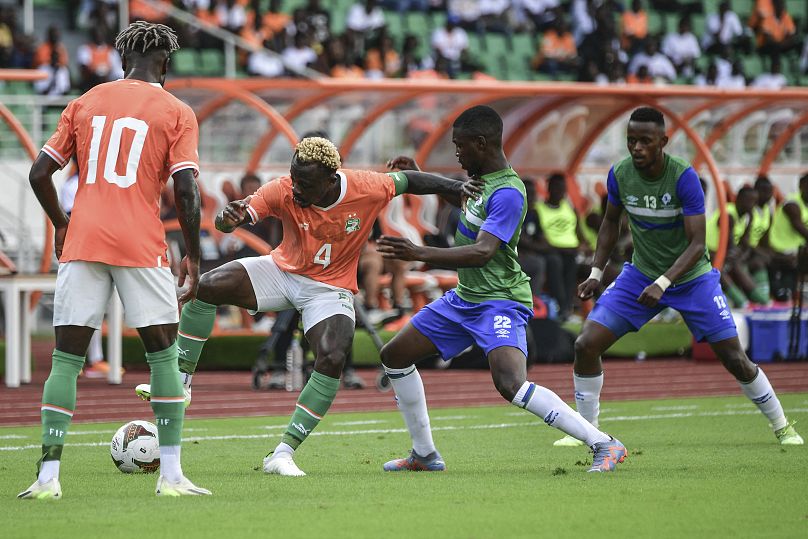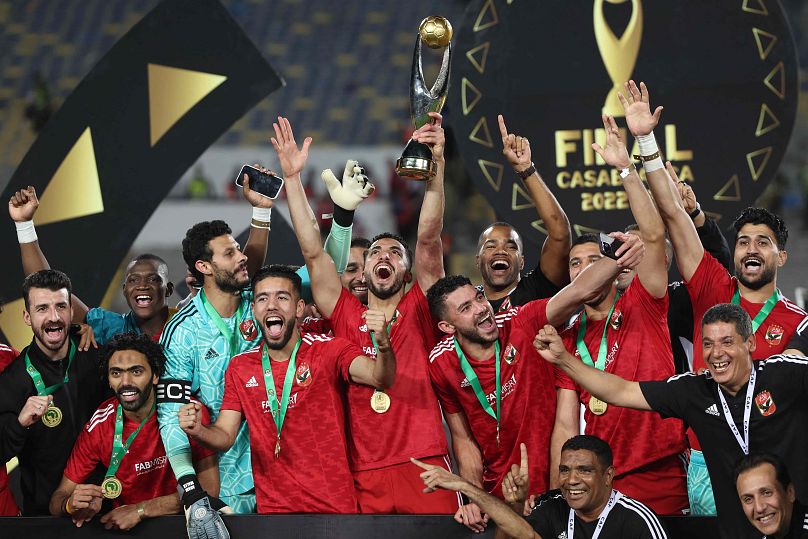Africa's newest elite football competition kicks off on October 20th
Africa's newest elite football competition, the African Football League, will finally begin on October 20th. It has been a long time coming for fans on the continent, but it's finally here.
The idea was announced in 2019 and is a joint creation of the world football governing body, FIFA, and the Confederation of African Football (CAF). Finally, four years later, we are just days away from kick-off. Eight teams will battle it out in a knockout format for the first edition only. They will be playing for a share of a prize pot thought to be worth almost €10 million. The final match will be played on November 11th, and the first winner of the African Football League will be known.
It has been a long road to get this tournament underway. There have been many moving parts, and a loss of nearly €15 million in the last financial year for CAF has meant a delayed start. Initially, 24 teams were to make up the entire league. The number was reduced to eight for the first year only in order to get the tournament underway. Every round will be a two-legged knockout tie, including the final. Controversially, the teams that will play in the quarter-final are already known, without a single game being played.
Fiso Mazibuko is a sports commentator for SuperSportTV in South Africa. He told Football Now that the league has come at a good time, but it won't be without its challenges:
"It's good to see representation from around the continent. It's good to see that the game can continue to grow, and hopefully, you know, from a monetary point of view, it makes sense for everyone, and the level of competition is good. In Europe, for example, there was a lot of controversy regarding the Super League and how that was played out and essentially the big clubs getting bigger.
But what about logistics? The tournament will take place at a time when playing schedules are already crowded.
"Cutting the tournament from 24 teams to eight is useful for the teething phase. Now, with eight teams, it can be played over four weeks. I think it makes it much easier to manage that particular situation because it's hard to travel around Africa. It really is." Fiso continued.
The competition will be an exciting celebration across the continent. Several of Africa's top teams will compete in the tournament's inaugural year.
Al Ahly (Egypt)
Enyimba FC (Nigeria)
Espérance Tunis (Tunisia)
Mamelodi Sundowns (South Africa)
Petro Atletico de Luanda (Angola)
Simba SC (Tanzania)
TP Mazembe (DR Congo)
Wydad Casablanca (Morocco)
"It's no doubt that (the favourites) are Al-Ahly of Egypt." Says Momodou Gajaga, Sports Anchor for QTV, Gambia.
"They've been record champions in the CAF Champions League. They have the best players. They have the most organised team. In terms of sponsorship and even when it comes to the revenue that they generate, their team and the fans that follow them, they are ahead of every other club.
Morocco has been a considerable force to reckon with and is a strong contender for the Cup. Esperance are former competition winners and are already firm favourites in the competition.
Enyimba from Nigeria, are worth keeping an eye on. However, it has been a long time since they have been Africa's top football club. In fact, for the last 20 years they haven't won any major competitions. So can they make a U-turn in this competition, which could allow them to prove their worth and regain the glories they achieved in years gone by?
It has been 13 years since a tournament of this size was held in Africa. The legacy of hosting the FIFA World Cup in South Africa in 2010 has yet to live up to expectations. Still, the finances generated by the Africa Super League could kickstart the roadmap to a brighter footballing future across the continent.














